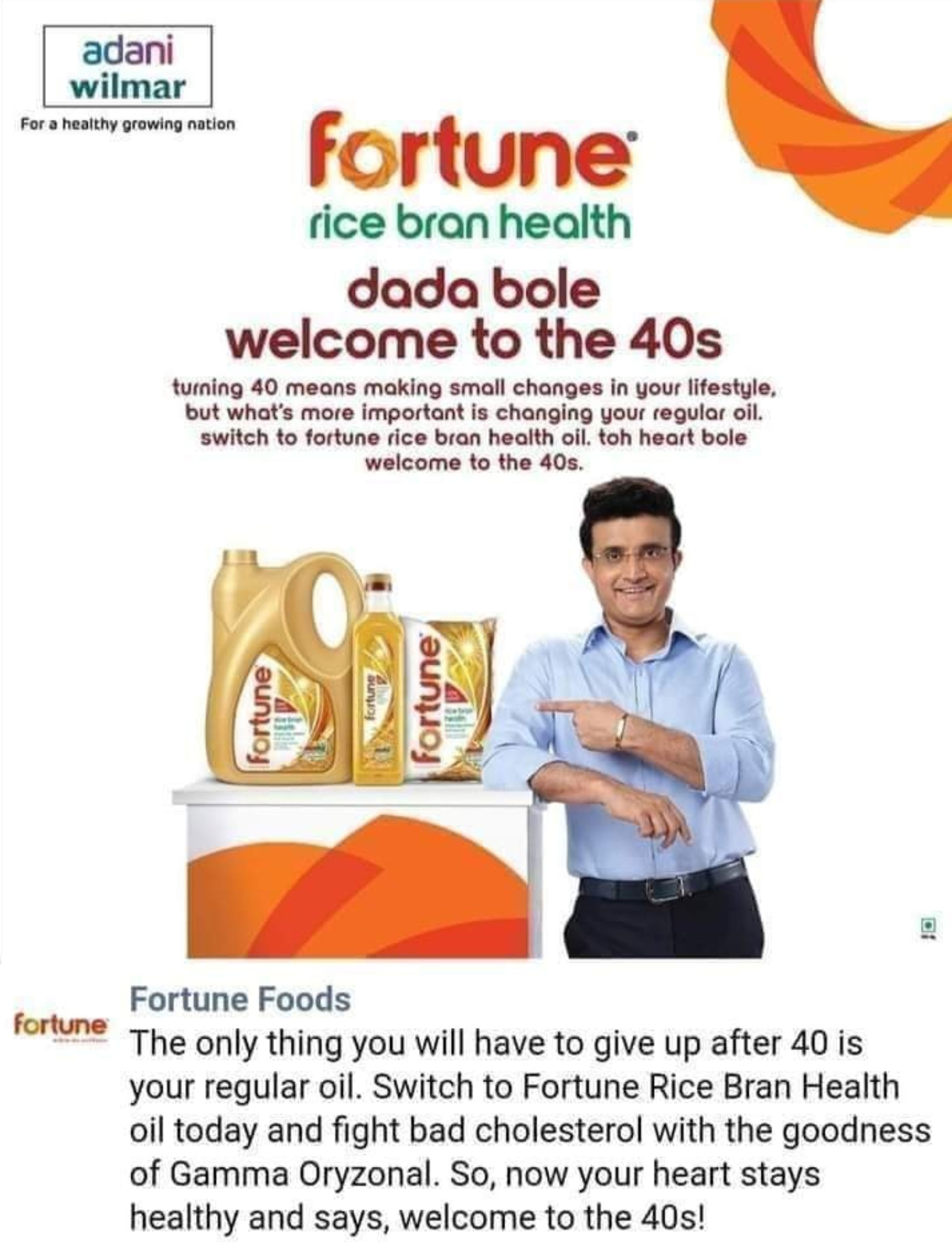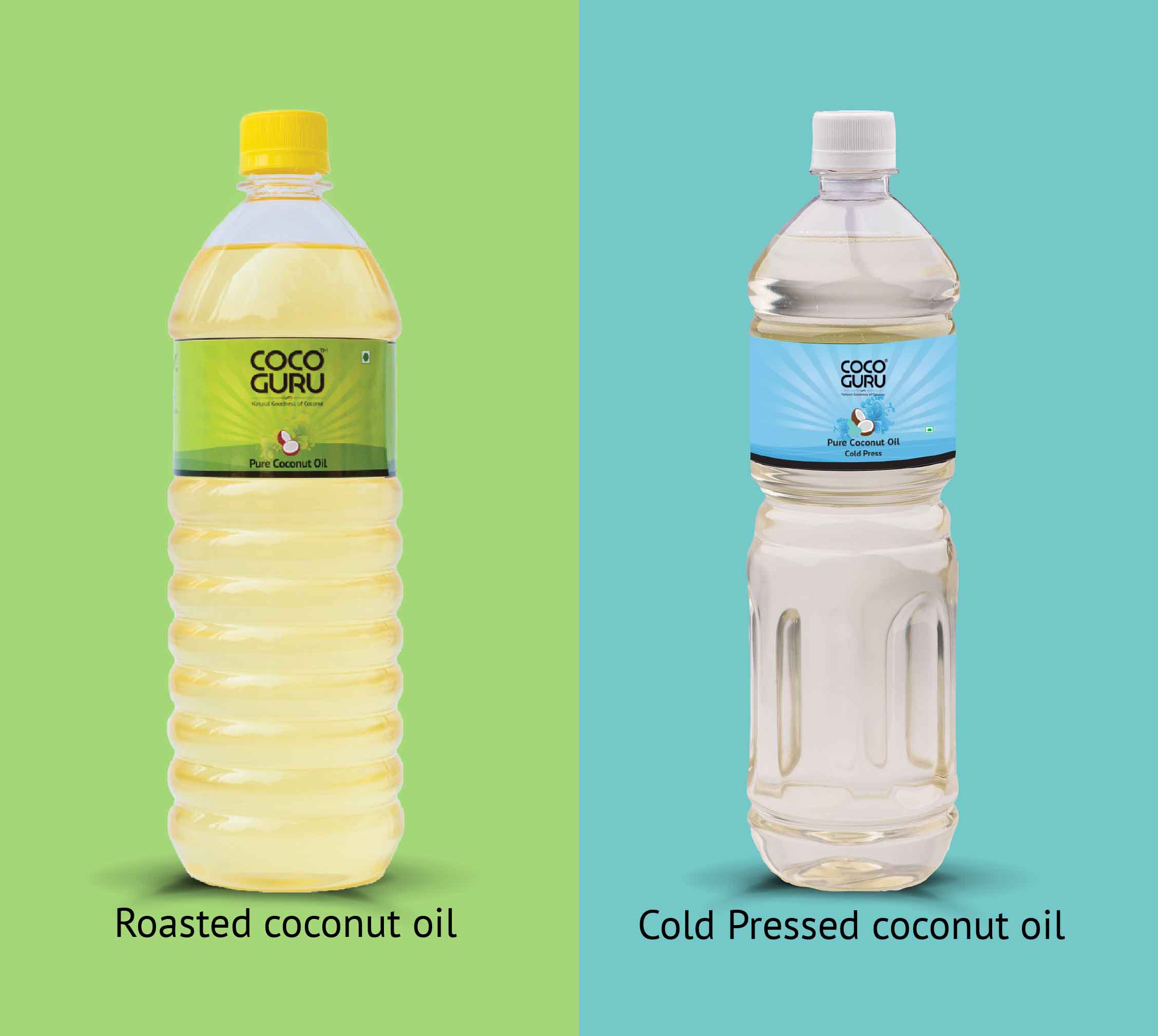
Saurav Ganguly, the price of Kolkata, former Indian test cricket captain, was responsible for building Indian cricket from the abyss of 2000 to what it is today. The post is not about cricket, but about the cooking oil he endorsed, his mild heart attack, trolling by individuals on social media.
It is unfortunate that our idol had a heart attack and as we had prayed, he has recovered quickly after Angioplasty. The moment news broke out about his heart attack, people remembered the product/brand he endorsed. The fortune brand refined rice bran oil marketed by Adani Wilmar, advertised by agency Oglivy and Mather that claims the oil to be heart healthy. Why did he get heart attack despite being a sports person at highest level and at a young age of 48?
At one level, it is unfair to target Saurav Ganguly or the brand Fortune for his present health status. Brand only claims that the oil is good for heart and never claims that no matter what you do, you will never get heart attack. Saurav on his part, despite following a healthy lifestyle had to get a heart attack. I promote coconut oil for cooking and hair but I am bald and I am not necessarily the healthiest. So, coconut oil or the brand Cocoguru is not responsible for it. But for that we need to think fairly, which doesn’t happen in the emotional world of advertising.
Should Saurav Ganguly promote the product/brand?
Saurav Ganguly has worked hard as a professional cricketer to achieve success he has and rise to be a nationally adored celebrity. He has borne the cost of being a celebrity also. It is only wise he uses his reach to commercially encash on his popularity. But people are only questioning his responsibility in choosing the products he has endorsed. I believe he must personally use it, must have done some basic research and liked it before endorsing it to others. I know Harsha Bhogle for one does the due diligence before endorsing a brand. A few cricketers like Hashim Amla don’t sport Castle Lager logo on their shirt though it is their national sponsor as it is a liquor brand. With financial commitments it is easy to endorse brands that pay the most. Sportsmen are also under the pressure to make money fast as they have limited time appeal mostly in their playing days when they are playing well.
Should the brand select Saurav Ganguly for the campaign?
The campaign is about being healthy even after crossing 40 years of age and Ganguly is a correct choice for it as he is an icon for all people across the country who are of that generation. But the brand’s advertising agency must have worked with Ganguly to find out if he really is a user of the product, does the product really promote heart health? For any long term relationship to work, deal must work fairly both ways.
Risk of having a personality endorse a brand
Nobody would have anticipated Ganguly suffering from heart attack, so the brand must be excused for not covering this risk. There have been backlashes in the past for celebrities taking political positions like Amir Khan, Deepika Padukone, Swara Bhasker etc and users have boycotted the products they have endorsed. Celebrities are humans after all and have their right to opinion and expression, but it runs the risk of their followers liking it or not. Using celebrities gives brands immediate benefits of reach and liking, but it also carries its risk.
Is there any logic, head or heart in promoting refined oils as healthy?
The low cost of refined oil gives its marketers the wide mass market for consumption and hence the marketing budget to spend enticing the users to switch to it. Refined oils may be devoid of impurities like free fatty acids, bad odour, extra colour, solid particles and moisture. But why did the oil have impurities in the first place? Because they were inferior grade oils that were made acceptable through refining. Crude, raw, filtered, cold pressed oils are extracted from superior grade oil seeds and ready of consumption as it is, without having to undergo refining. But they are expensive because such oil seeds are expensive. Crude oils are healthy but their manufacturers don’t have the marketing muscle to promote it to masses. Masses can’t afford it either. Masses usually succumb to dubious claims by advertisers especially if it comes from a celebrity.



 Our new factory at Kallarpe (Aryapu Village, Puttur) manufactures Roasted Coconut Oil. Our new customers have instantly liked it because of its enhanced aroma and taste. But our Old customers who have used Cold Pressed Coconut Oil manufactured from our old factory at Parladka (Puttur) have various kinds of doubts about it. I seek to clear those doubts here.
Our new factory at Kallarpe (Aryapu Village, Puttur) manufactures Roasted Coconut Oil. Our new customers have instantly liked it because of its enhanced aroma and taste. But our Old customers who have used Cold Pressed Coconut Oil manufactured from our old factory at Parladka (Puttur) have various kinds of doubts about it. I seek to clear those doubts here.